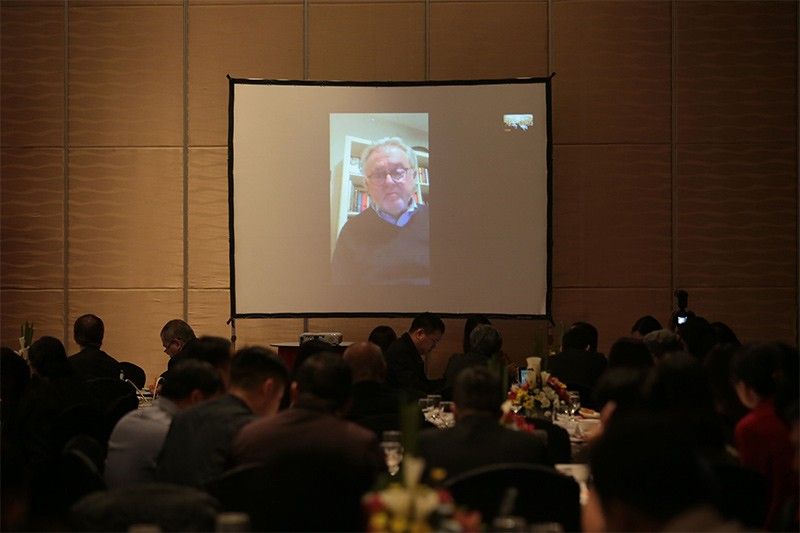Philippines to be 'international lawbreaker' if death penalty revived — expert

MANILA, Philippines — An expert on international law on Thursday said that if the Philippines would be in violation of an international treaty if it brings back capital punishment.
Professor William Schabas pointed out in a livestreamed speech at the National Congress Against the Death Penalty that the Philippines ratified the International Covenant on Civil and Political Rights in 1986 and the Second Optional Protocol to the ICCPR in 2007.
Schabas has taught international law and human rights in universities across more than five countries. His writings on capital punishment have been cited in judgments by national and international tribunals, including the supreme Courts of the Philippines, the United States, and Canada.
By signing the Second Optional Protocol to the ICCPR, the Philippines voluntarily bound itself not to revive the death penalty. The protocol took effect on Feb. 20, 2008.
Reviving the death penalty would mean the Philippines would be unable to enter future international treaties because it would earn a reputation globally as a country unable to abide by its word, Schabas said.
In March 2018, the Philippines announced the withdrawal of its ratification of the Rome Statute, which created the International Criminal Court, after the tribunal’s chief prosecutor launched a preliminary examination into alleged crimes against humanity linked to the government's "war on drugs."
Schabas said that in ratifying the International Covenant on Civil and Political Rights, "the Philippines knew that this was a permanent commitment and that it was impossible to return."
"That was known to the government," he stressed.
The House of Representatives on March 7, 2017 approved on third and final reading House Bill 4727, which, if passed into law, would revive the death penalty for drug-related crimes.
However, the proposed law – if enacted – can be amended to include other crimes in its scope.
A total of 19 bills in Congress seek to reinforce capital punishment in the Philippines. Seven bills were filed in the Senate, while 12 were filed in the House of Representatives.
Consequences
The problem is most treaties don't have claws against states that wish to withdraw from these, Schabas said.
“I don’t think that anyone should be dismissive or cavalier about this harm [left by a] state that deliberately and clearly defies its treaty obligations.”
If the Philippines goes ahead with its death penalty measure, it would be the first country after North Korea to openly challenge a global treaty and would be known worldwide as an international outlaw, the professor said.
Global treaties cover not only capital punishment but a whole range of other topics. Regardless of nature, the Philippines would have trouble entering any future treaties if it earns a reputation as an “international outlaw,” Schabas said.
“Now it may come as a disappointment to some people in the Philippines to realize that the government in 2007 made a commitment that could not be changed,” Schabas said.
“[But] it was well informed of what the consequences were when it ratified the Second Optional Protocol to the International Covenant on Civil and Political Rights.”
Death penalty in the Philippines
The Philippines in 1987 became the first Asian country to abolish capital punishment. Death penalty convictions were reduced to reclusion perpetua, or a sentence of from 20 to 40 years.
However, Republic Act 7659 in 1993 revived the death penalty as a punishment for 21 heinous crimes.
The Philippines set a new record in 2006 when it became the first country to abolish and revive capital punishment and then abolish it again through RA 9346.
Punishment for death penalty convictions then were reduced to reclusion perpetua.
The Philippines, during the presidency of Gloria Macapagal-Arroyo, ratified the Second Optional Protocol to the ICCPR without reservations.
The protocol commits signatory states to never execute any person within their government’s jurisdiction and to take the necessary steps to abolish all death penalty measures.
It states: “No reservation is admissible to the present Protocol, except for a reservation made at the time of ratification or accession that provides for the application of the death penalty in time of war pursuant to a conviction for a most serious crime of a military nature committed during
wartime.”
Despite the Philippines being a party to the treaty, President Rodrigo Duterte placed the reinstatement of death penalty among his administration’s legal agenda, urging lawmakers to draft the law.
“‘Yung hanging, once the spine is ripped off inside, wala na. Just like putting off a light,” Duterte said in May 2016 during his first press conference since election day.
(Kill them by hanging. Once the spine is ripped off inside, they’re gone. Just like putting of a light.)
The first bill filed in the 17th Congress after Duterte took office was HB 1 on Jun. 30, 2016. It sought to repeal RA 9346 and restore death penalty for certain heinous crimes.
Among its authors is former House Speaker and Duterte ally Pantaleon Alvarez.
The bill was consolidated into and substituted by HB 4247, which was passed on third and final reading in March 2017.
Duterte did not include the revival of the death penalty in the priority bills mentioned in his 2019 State of the Nation Address.
- Latest
- Trending
































